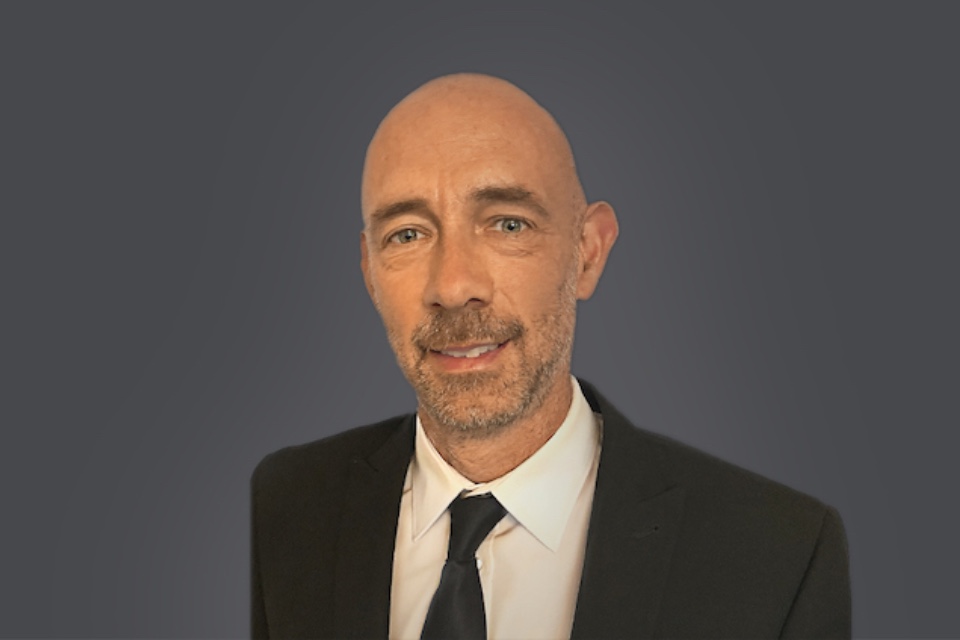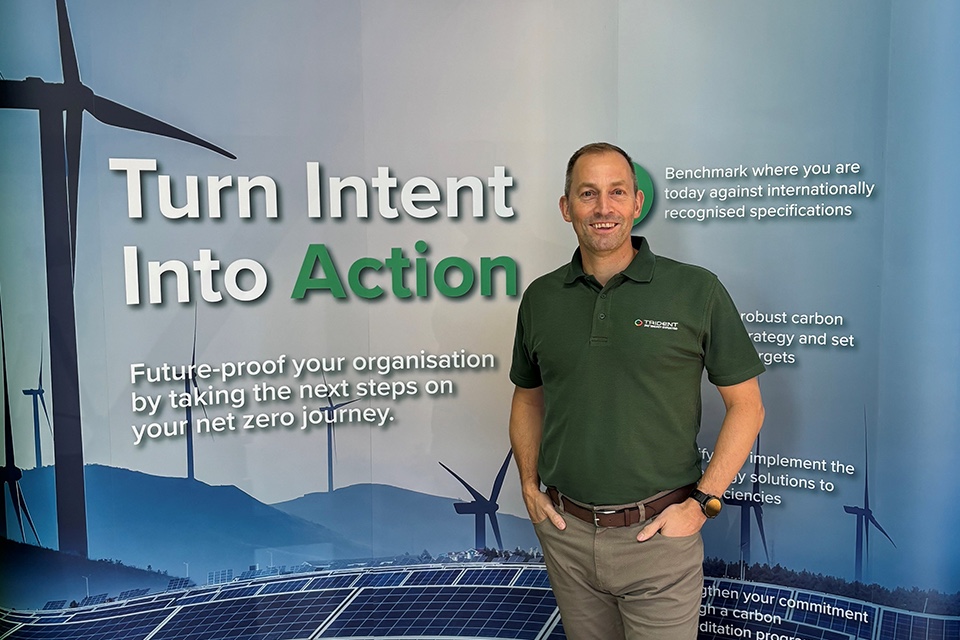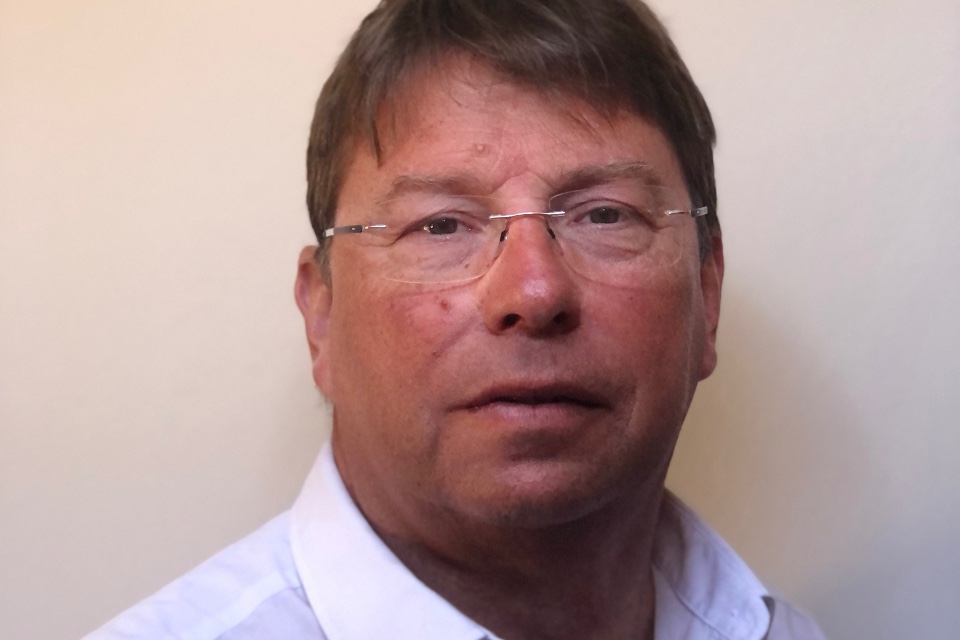In the latest instalment of our energy management industry executive interview series we speak to Phil Smethurst, Business Development Manager at EA Technology, about delivering resilience without compromising cost efficiencies, the opportunities presented by predictive modelling tools, and the potential of AI-enabled grid modelling…
Tell us about your company, products and services
EA Technology has been helping operators manage their electrical assets for nearly 60 years. Our high voltage and low voltage monitoring software gives customers unparalleled visibility of their networks. By predicting when and where faults will occur, our technology helps extend the life of electrical assets, reduce downtime, and ultimately save customers money. Alongside our monitoring solutions, we provide reclosers, modelling software, and consultancy services that support the safe, reliable and cost-effective transition to Net Zero.
What have been the biggest challenges the Energy Management industry has faced over the past 12 months?
Operators are under pressure to keep the lights on while demand from electrification grows rapidly. Affordability is critical — customers expect reliable supply without rising costs. At the same time, integrating renewables at pace and dealing with skills shortages and supply chain pressures have stretched resources. The challenge has been delivering resilience without compromising cost efficiency.
And what have been the biggest opportunities?
The digitalisation of networks has opened up new opportunities to drive efficiency and reduce costs. Customers are increasingly adopting monitoring and predictive modelling tools that help them act before faults occur — saving money and improving reliability. There’s also growing appetite for collaboration between utilities, regulators and technology providers, which is speeding up innovation and ensuring that solutions deliver real value in practice.
What is the biggest priority for the Energy Management industry in 2025?
The priority for 2025 is strengthening grid resilience in a cost-effective way. That means scaling up digitalisation and embedding real-time monitoring so operators can predict issues before they become costly outages. At the same time, every investment decision needs to deliver both long-term reliability and measurable savings for customers.
What are the main trends you are expecting to see in the market in 2025?
We expect to see a continued shift from reactive to predictive management, where monitoring solutions help operators intervene early and extend asset life. Low voltage Classification: Publicvisibility will grow rapidly, reducing unplanned outages and cutting costs. Skills development will remain a focus, and we’ll see more use of flexibility services and decentralised energy to complement traditional reinforcement — providing affordable ways to balance the system.
What technology is going to have the biggest impact on the market this year?
AI-enabled grid modelling and forecasting will give operators the confidence to plan smarter and avoid unnecessary spending. Advanced LV and HV monitoring tools, such as our VisNet range, will have a huge impact by reducing outages and extending asset life. Digital twins will also allow customers to test strategies virtually, helping them make better investment decisions and save money in the real world.
In 2026 we’ll all be talking about…?
We’ll all be talking about how digitalisation is helping the industry do more with less. Predictive insights and AI will be showing their worth — reducing costs, cutting downtime, and proving that smarter networks are also more affordable. The focus will be on how to accelerate this transition without passing unnecessary cost onto customers.
Which person in, or associated with, the Energy Management industry would you most like to meet?
We would most like to meet forward-thinking individuals who are driving the industry’s innovation agenda. Equally, it would be valuable to engage with policymakers and regulators shaping Net Zero policy, as their decisions will have a lasting impact on the direction of the sector.
What’s the most surprising thing you’ve learnt about the Energy Management sector?
The most surprising thing is the sheer scale of transformation needed at low voltage level. Traditionally, attention has been focused on transmission, but it is in the LV network where many of the biggest challenges — and opportunities — lie. It has also been remarkable to see how quickly utilities and customers are now embracing innovation.
You go to the bar at the Energy Management Summit – what’s your tipple of choice?
A classic gin and tonic — crisp and clear, a bit like the insights our monitoring software provides. Though, on some occasions, a pint of local ale feels more fitting — approachable, reliable, and built with care.
What’s the most exciting thing about your job?
The most exciting part is seeing our work make a real difference for customers. Whether it’s helping them prevent outages, extend the life of assets, or reduce operating costs, it’s incredibly rewarding to know our technology is having a tangible impact. Working with innovative engineers and forward-thinking customers keeps every day fresh.
And what’s the most challenging?
The biggest challenge is translating complex technology into simple, customer-focused benefits. Our engineers love the detail, but customers need clear answers to how it will improve reliability, cut costs or help them reach Net Zero. Striking that balance —without losing the innovation story — is a challenge we’re always tackling.
What’s the best piece of advice you’ve ever been given?
“Always look at the outcome through the customer’s eyes.” If we can show how a solution saves money, improves resilience or makes their job easier, we know we’re on the right track.
Peaky Blinders or Stranger Things?
We don’t do drama — our job is to keep the lights on and the networks safe. While others enjoy the suspense, we’d rather prevent the plot twists by stopping faults before they happen!




